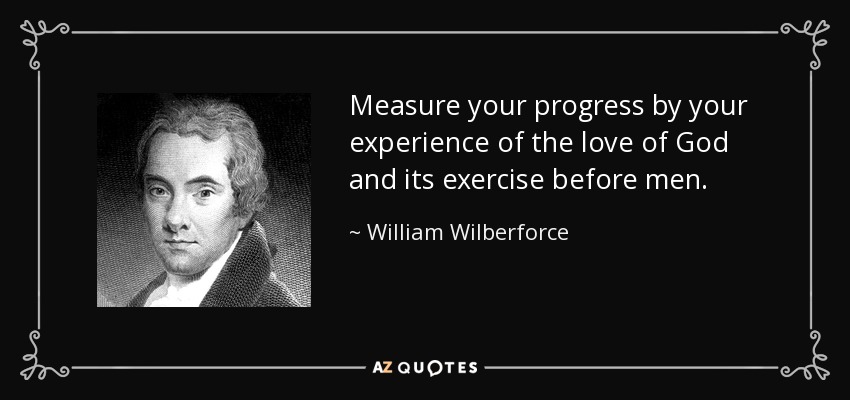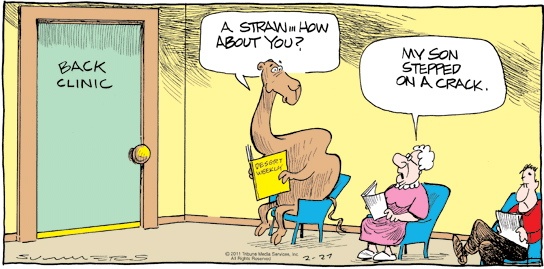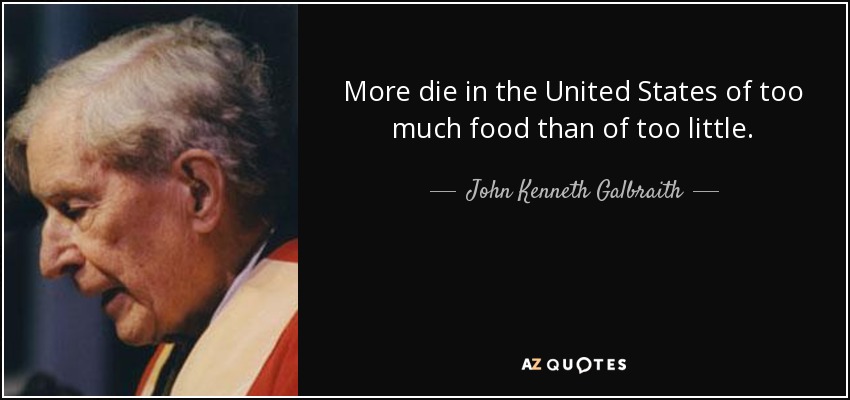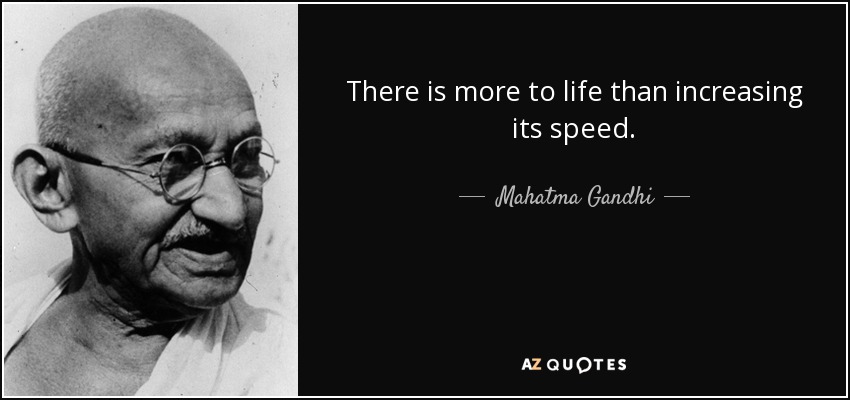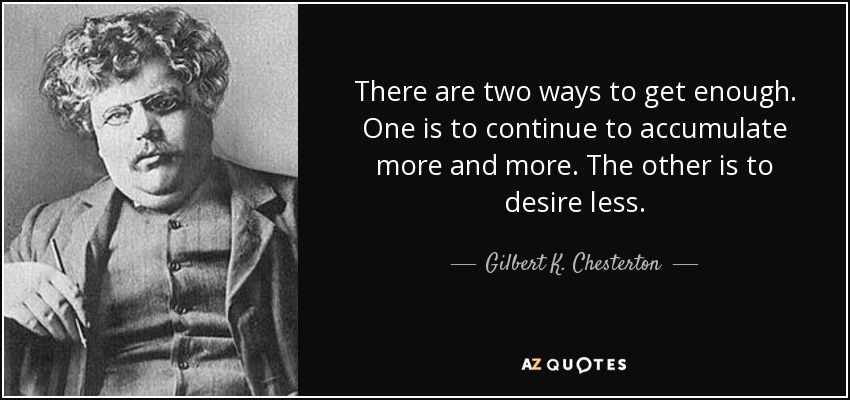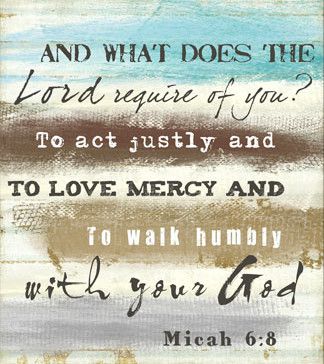Click here to return to Blog Post Intro

Margin is having breath left at the top of the staircase, money left at the end of the month, and sanity left at the end of adolescence.
Marginless is culture; margin is counterculture. Marginless is the disease of the new millennium; margin is its cure.
Rx: From the Desk of…
Richard A. Swenson, M.D.
| Symptom: | Pain |
| Diagnosis: | Overload |
| Prescription: | Margin |
| Prognosis: | Health |
Part One—The Problem: PAIN
The Pain of Progress
Axiom #1: Progress works by differentiating our environment, thus always giving us more and more of everything faster and faster. The American definition of happiness is, after all, “more than I have now,” and progress provides “more” in abundance. However, there are additional consequences to this “more” that were not initially anticipated.
Axiom #2: The spontaneous flow of progress is toward increasing stress, change, complexity, speed, intensity, and overload.
Axiom #3: All humans have physical, mental, emotional, and financial limits that are relatively fixed.
Axiom #4: The profusion of progress is on a collision course with human limits. Once the threshold of these limits is exceeded, overload displaces margin.
Axiom #5: On the unsaturated side of their limits, humans can be open and expansive. On the saturated side of these limits, however the rules of life totally change.
There are essentially five Environments of Life:
- Most of our progress has been made in our Physical & Cognitive Environments
- Most of our pain can be found in our Social, Emotional, and Spiritual Environments
The Pain of Problems
In the past, progress could be tracked linearly. Today, change is exponential. Because life has now shifted to exponential terms, the issue of limits has suddenly become an important one.
Much of this pain is in our relational life: to self, to others, to God. We miss margin in many areas. But we require it in our relationships. When we have no margin and our limits have been exceeded; when we are besieged by stress and overload; when our relational life is ailing; when it seems the flood of events is beyond our control; then problems take on a different dimension.
The Pain of Stress
Four out of five Americans report a need to reduce stress in their lives, often resorting to tranquilizers. Eustress, or positive stress, energizes us. It is what football players call “psyching up” before a game. When the stress response becomes negative or destructive, it is called distress. This is what most of us mean when we use the word stress. An excessive volume of stress is called hyperstress. If, however, the amounts are hyperstress levels, then stress reduction is more important than stress management.
If you bend a small tree and then release it, the sapling will return to its former shape. This is analogous to stress—we bend and then recover. However, it you bend the sapling until it snaps, it stays broken. This is analogous to burnout. Something inside breaks.
The Pain of Overload
The spontaneous tendency of our culture is to inexorably add detail to our lives: one more option, one more commitment, one more expectation, one more purchase, one more debt, one more change, one more job, one more decision. We must now deal with more “things per person” than at any other time in history. This is called overloading. (Brady’s Note: I’ve heard this called “More On” Behavior.)
- Fatigue overload—We are a tired society. Even our leisure is exhausting—54 percent of us admit we are more exhausted at the end of a vacation than at the beginning.
- Hurry overload—Haste is a modern ailment. Our lives are nonstop, lived at a breathless pace. Thirty-six percent of us say we are rushed all the time. But, as the Finnish proverb teaches, God did not create hurry.
- Noise overload—Every day 50 percent of the U.S. population is exposed to noise that interferes with speech or sleep. True quiet is extremely rare.
- Possession overload—We have more “things per person” than any other nation in history. Closets are full, storage space is used up, and cars can’t fit into garages. Having first imprisoned us with debt, possessions now take over our houses and occupy our time.
- Work overload—Work is God-ordained. Work overload, however, was not part of the original plan. Yet every morning millions of Americans head drudgingly to an exhausting work schedule that leaves them stressed and worn out.
Camels are able to carry great loads. If, however, a straw is placed on a camel maximally loaded down, its back will be broken. The back is not broken by the straw; it was broken by overload.
“Researchers,” according to sociologist Alvin Toffler, “strongly agree on two basic principles: first, that man has limited capacity; and second, that overloading the system leads to serious breakdown of performance.”
“In a culture where whirl is king, we must understand our emotional limits,” asserts Richard Foster. “Ulcers, migraines, nervous tension, and a dozen other symptoms mark our psychic overload. We are concerned not to live beyond our means financially; why do it emotionally?”
Part Two—The Prescription: MARGIN
Margin
Margin is the space between our load and our limits. Margin is the gap between rest and exhaustion—the opposite of overload.
Yesteryear, by default rather than choice, people lived slower, more deliberate lives. They had time to help a neighbor. Their church and social activities more often drew them together than pulled them apart. The past might have been poor and deprived in many respects, but its people had margin.
In the Third World, people have margin. They sit and visit, they watch children play, they walk without hurry, and they sleep full nights.
Margin is not a spiritual necessity. But availability is. God expects us to be available for the needs of others. And without margin, each of us would have great difficulty guaranteeing availability. Instead, when God calls, He gets the busy signal.
To be healthy, we require margin in at least four areas: emotional energy, physical energy, time, and finances.
Margin in Emotional Energy
When we are emotionally resilient, we can confront our problems with a sense of hope and power. According to the National Institute of Health, the burden of mental illness on health and productivity has long been underestimated, and accounts for over 15 percent of the total “burden of disease” in the US, ranking second only to ischemic heart disease. Between 22-28 percent of Americans suffer from a mental disorder in any given year. In medical practice, depression is a daily finding.
Gregg Easterbrook, “Ten times as many people in the Western nations today suffer from unipolar depression, or unremitting bad feelings, without a specific cause, than did half a century ago. Americans and Europeans have ever more of everything except happiness.” This same finding, however, is not occurring in developing countries.
Restoring Margin in Emotional Energy
Rx 1: Cultivate Social Supports: The mental health slogan “Good Friends Are Good Medicine” is not a cliche; it is state-of-the-art therapeutics.
Rx 2: Pet a Surrogate: Pets are capable of bonding, are extremely loyal, and often exhibit deep appreciation for our affections—exactly the kind of responses needed to increase our emotional reserves.
Rx 3: Reconcile Relationships
Rx 4: Serve One Another: Medical studies reveal that service is health enhancing. One of the best ways to heal your own emotional pain is to focus instead on meeting the needs of others.
Rx 5: Rest: Escape. Relax. Sleep in. Take a nap. Try setting aside time regularly tor some quiet and for rest. Even Jesus did the same: “Come with me by yourselves to a quiet place and get some rest.” So they went away by themselves in a boat to a solitary place. Rest restores.
Rx 6: Laugh: Clearly, humor is medicinal. By the time babies are four months old, they already are laughing once every hour. And by the age of four years, these clowns laugh on average once every tour minutes—or four hundred times a day. The time we reach adulthood, however, we manage only fifteen laughs a day.
Rx 7: Cry: Crying is a form of emotional purging. According to some studies, those who cry more often get sick less often. Laughter lifts; crying cleanses.
Rx 8: Create Appropriate Boundaries: Psychologist Dr. John Townsend says, “People with unclear boundaries can find themselves making commitments under pressure that they would never make with a clear head. They find themselves ‘caving in’ to others. We need to find maturing, caring people who will love our boundaries just as much as they love our attachment… Ask yourself, ‘Do people closest to me love my no as much as they love my yes?’”
Rx 9: Envision a Better Future
Rx 10: Offer Thanks: Gratitude fills. Grumbling drains. The choice is ours.
Rx 11: Grant Grace: Grace treats people not as they deserve but better than they deserve.
Rx 12: Be Rich in Faith: In his book Resilience, psychiatrist Dr. Friedrich Flach states, “I believe the most vital ingredient of resilience is faith.”
Rx 13: Hold Fast Hope: Harvard psychiatrist Dr. Armand Nicholi says, “Psychiatrists have long suspected that hope fosters health, both physical and emotional.”
Rx 14: Above All, Love: “The effort to ‘love thy neighbor as thyself’ probably has done more good, and more to make life pleasant, than any other guideline, observes Dr. Selye.
Margin in Physical Energy
Three factors—poor conditioning, sleep deprivation, and obesity—constitute a physical energy desert where no margin can grow. The average American today gets two and one-half hours less sleep per night than 100 years ago.
Only 15 percent of teens get the minimum recommended 8.5 hours of sleep they need per night, and this sleep deficit is additionally linked to other problems such as obesity, attention deficit symptoms, and depression.
During Revolutionary War days, when 90 percent of our population were farmers, physical labor was an indispensable part of daily activity. Today, however, only 2 percent of Americans earn their living off the land.
Rx 1: Take Personal Responsibility: If you are underslept, overweight, and unexercised, it is your job to change.
Rx 2: Gain Physical Margin through Emotional Margin
Rx 3: Change Your Habits
Rx 4: Value Sleep (Choose to get enough rest)
Rx 5: Develop Healthy Sleep Patterns
Rx 6: Don’t Catastrophize Insomnia: “The best cure for insomnia,” said W.C. Fields, “is to get enough sleep…”
Rx 7: Don’t Oversleep
Rx 8: Take a Nap: Many of the world’s great leaders were nappers. John F. Kennedy napped in the White House, and Churchill took daily naps during World War II. Even Jesus napped.
Rx 9: Exercise for Sounder Sleep
Rx 10: Decrease Intake of Fat, Sugars, and Total Calories
Rx 11: Replaced Processed Snacks with Fruit
Rx 12: Avoid Overeating (Put smaller portions on the table.)
Rx 13: Garden or Buy Direct
Rx 14: Drink a Lot of Water
Rx 15: Use Exercise as Both Appetite and Weight Reducer
Rx 16: McStay at Home: Americans now spend over $1 billion a day eating out, usually choosing higher caloric foods than when eating at home.
Rx 17: Exercise for the Heart: Perform thirty to forty-five minutes of sustained exercise—walking, jogging, swimming, bicycling—three or four times a week.
Rx 18: Exercise for the Muscles: The simple fact is, progress wrongly released us from the need to use muscles, and if we do not use them we lose them.
Rx 19: Exercise for Flexibility: Undergoing a program of flexibility can help regain some of the lost range of motion with laudatory results.
Rx 20: Exercise for the Mind and the Spirit: 100% of people who exercise to the point of cardiorespiratory fitness will experience an increased sense of well-being. Along with increased energy, it grants increased alertness, independence, dignity, self-esteem, and sleep.
Rx 21: Bike or Walk
Rx 22: Choose What Works for You: “The generic drug here is exercise, and running is simply a brand,” explains fitness activist George Sheehan, M.D. “It’s a question of finding your brand of the drug.”
Rx 23: Stick With It
Rx 24: Be Realistic: If dieting, aim to lose only one to two pounds a week. Be patient and persistent. “How poor are they who have no patience!” wrote William Shakespeare.
God gave us an amazing gift with our bodies, and all we are required to do is feed it, water it, rest it, and move it. Yet it needs to be the right food, water, rest, and movement.
Margin in Time
To understand how a society experiences time, examine its operative vocabulary. We talk of no time, lack of time, not enough time, or being out of time. Trying to get more time, we borrow time only to incur a time debt and end up with even less time. This sense of time urgency creates time pressure and time stress.
Ideally, you see, our time should all be God’s time, directed by Him and used for His purposes.
In 1879, Thomas Edison produced the first electric light. If the clock broke up the day, the lightbulb broke up the night. The clock and the light—they gifted with time, then they stole it away.
In 1967, testimony before a Senate subcommittee claimed that by 1985 people could be working just twenty-two hours per week or twenty-seven weeks a year. Workers in the United States now lead the industrialized world in annual work hours.
One recent summer, Swenson’s family took a sabbatical in Norway where, at the time, the average Norwegian worker put in an astounding fourteen weeks per year less than the average U.S. worker (based on the 40-hour workweek). A 2002 report by the National Institute for Occupational Safety and Health indicates “that the average work year for prime-age working families has increased by nearly 700 hours in the last two decades and that high levels of emotional exhaustion at the end of the workday are the norm for 25% to 30% of the workforce.”
Axiom #6: The spontaneous flow of progress is to consume more of our time, not less.
Let’s revisit the Third World. Here we find no televisions, no shopping, no traffic lights, no telephones, no cluttered desks, no junk mail. What do people do with their time? It exists for them as margin. Some of their time is used for work—the physical work of growing food, which is good for the body and spirit. Some of their time is used for visiting the marketplace, which is good for community. A good portion of their time is for leisure. Time to watch the kids play or the donkeys bray. Or to talk to the neighbor. Or to sleep.
Improving productivity in the workplace is the equivalent to bodybuilding in the gym, and efficiency is the steroid. Bosses know that time pressure increases both productivity and efficiency. But, of course, we must have quality. So we want more and more speed, more and more efficiency, more and more productivity, better and better quality. In the end we have platinum products and dead workers. “
Everyone needs God time. Because He is not pushy about His agenda, God is too easy to forget. He just waits… and waits. What does He think of “efficient” prayers? What happened to the “Be still and know that I am God” times? The clock and the Christ are not close friends. Imagine what God thinks of us now that we are so locked into schedules that we have locked ourselves out of the Sermon on the Mount.
Rx 1: Expect the Unexpected: A proverb in Ecuador states, “Everything takes longer than it does.” This is not a perfect world, and the unexpected happens.
Rx 2: Learn to Say No: Without this two-letter word, I doubt that regaining margin is possible. “Focus does not mean saying yes,” explained Steve Jobs, “it means saying no.”
Rx 3: Turn Off the Television: “I routinely require my students to engage in some kind of ‘media fast’ in which they abstain from an electronic medium for at least one week,” says seminary professor Douglas Groothuis. “The results have been nothing less than profound for the vast majority of the students. Having drawn from the world of TV, radio, computers, they find more silence, more reflection and prayer, and more opportunities to engage family and friends thoughtfully.”
Rx 4: Prune the Activity Branches
Rx 5: Practice Simplicity and Contentment: Everything we own owns us. Recognize unnecessary possessions for what they are: stealers of divine time.
Rx 6: Separate Time from Technology: All the countries with the most time-saving technologies are the most stressed-out countries—an assertion easy to prove. A man from Mali, West Africa told me, “You Americans have all the watches, but we have all the time.”
Rx 7: Short-Term Flurry Versus Long-Term Vision: It is good to have 5 and 10-year plans, but our goals should be flexible to the redirecting God so often asks of us. But each of us needs a direction and a vision that can inform his or her focus.
Rx 8: Thank God
Rx 9: Sabotage Your Fuse Box: Pastor Gordon MacDonald, “Why on the one Sunday in five years when a New England snowstorm forced us to close down our church, it is universally recognized by the congregation as the most wonderful Lord’s day they had ever had?”
Rx 10: Get Less Done But Do the Right Things: “For many people,” says pastor and author Rick Warren, “the barrier to spiritual growth is not lack of commitment, but overcommitment to the wrong things.”
Rx 11: Enjoy Anticipation, Relish the Memories
Rx 12: Don’t Rush Wisdom: The more important the decision, the longer you should take to make it.
Rx 13: For Type A’s Only: Stand in Line: Cardiologist Dr. Meyer Friedman, one of the first to describe the type A personality, offered this practical advice to his patients: “Practice smiling. Purposely speak more slowly, stop in the middle of some sentences, hesitate for three seconds, then continue. Seek out the longest line at the bank. Verbalize your affection to your spouse and children.”
Rx 14: Create Buffer Zones: If you have a busy schedule with nonstop appointments, consider small buffer zones between some of the obligations.
Rx 15: Plan for Free Time: This is the lifestyle that Christ himself chose. Time urgency was not only absent; it was conspicuously absent. And I doubt its absence had to do with cultural context.
Rx 16: Be Available: Pastor Bruce Larson asks, “Am I interruptible? Do I have time for the nonprogrammed things in my life? My response to those interruptions is the real test of my love.”
“We must be ready to allow ourselves to be interrupted by God,” explained Dietrich Bonhoeffer.
Margin in Finance
Many are living beyond their means. Debt, they say, unavoidably imprisons the future, and the “buy now, pay later” mentality too often corrupts into “binge now, pain later.” The debt trap set for us has a sudden spring, one that cuts off financial margin at the neck.
“God doesn’t prohibit borrowing,” explains Larry Burkett, “but He certainly does discourage it. In fact, every biblical reference to it is negative.” Why? Because, as Proverbs explains, “the borrower is servant to the lender.”
Nothing in Scripture and in the chosen lifestyle of Christ could be clearer: Wealth is not a primary objective of the spiritual life. When we encounter money along the path of life, we are encouraged to do one of three things with it: turn and walk in the other direction; pick it up and give it away; or use it for the necessities of daily living. Any other interaction risks adverse spiritual consequences.

It is not that money is evil, but that the love of money leads to all kinds of evil. According to the investment firm of John & John (Apostle John and John Wesley), it seems that we should keep our generosity high, and our expectations heavenward.
Financial margin is important for at least these three reasons:
- By lowering expenses below income you live with far less stress and pressure.
- Having financial margin allows beneficence toward others.
- In giving, you are ushered into a world where cynicism and hatred have been banished. You are considering others before yourself. You are doing what God asked you to do, and what He did Himself. In giving, you are pleasing Him. “It is more blessed to give than to receive,” Jesus taught us through Paul.
Rx 1: Travel in the Right Direction: In dealing with money, settling the issue of lordship is a mandatory first step. We are not talking about restoring financial margin for the purposes of pride, of wealth, or of meeting our security needs in a way that bypasses the Father. Instead, we are talking about the kind of financial margin that honors Him. If we are to restore margin to our finances, we must put first things first.
Rx 2: Break Its Back: Money is so powerful, taught Jesus, that it competes head-to-head with God. “For Mammon’s work is the exact opposite of God’s” explains French sociologist Jacques Ellul.
Rx 3: Counter Culture
Rx 4: “Live Within Your Harvest”: Contentment and simplicity are invaluable friends in this effort.
Rx 5: Discipline Desires and Redefine Needs: What we call “needs” today is certainly much longer than the list was in 1900, which was in turn longer than the list at the time of Christ. Our true needs are few and basic: We need God, love, relationships, meaningful work, food, clothing, and shelter.
Rx 6: Decrease Spending: Context of our culture screams against restraint.
Rx 7: Increase Income
Rx 8: Increase Savings
Rx 9: Make a Budget
Rx 10: Discard Credit Cards: For a fairly large percentage of people, nothing would regain their financial margin faster than the simple act of destroying all their credit cards and instead paying cash for purchases.
Rx 11: Don’t Mortgage the Future: Financial counselors advise against assuming a mortgage of more than 40 percent of net spendable income. Included in this percentage are not only the mortgage payments but also the real estate taxes, insurance, utilities, and repairs.
Rx 12: Resist Impulses
Rx 13: Share, Lend, Borrow: We need to develop a true depreciation of things and a new appreciation of people. Things are to be used, people are to be served.
Rx 14: Emphasize Usefulness over Fashion
Rx 15: Fast: Remember the sampler on Grandma’s kitchen wall: “Use it up. Wear it out. Make it do. Do without.”
Rx 16: Kingdom First: Jesus was distinctly unambiguous when teaching about priorities: “But seek first the kingdom of God and His righteousness, and all these things will be added to you.”
Part Three—The Prognosis: HEALTH
Health Through Contentment
Historian Arthur M. Schlesinger, Jr., points out that our society is marked by “inextinguishable discontent.” Discontent has become a way of life. We are told this is “the age of envy.”
Contentment is both commended (“Godliness with contentment is great gain”) and commanded (“Be content with what you have”)
“Godliness with contentment” is an elusive commodity. Godliness is an attitude whereby what we want is to please God. Contentment, explains J. I. Packer, “is essentially a matter of accepting from God’s hand what He sends because we know that He is good and therefore it is good.”
Contentment isn’t the complacency that defeats any attempt to make things better, but instead the willingness to work tirelessly for improvement, clinging to God rather than results. The advantages of contentment are many: freedom, gratitude, rest, peace—all components of health.
We relate better to God when we are satisfied with what He gives.
“Watch out!” warns Jesus. “Be on your guard against all kinds of greed; a man’s life does not consist in the abundance of his possessions.” (Luke 12:15) Discontent is a matter of the will, a choice.
Health Through Simplicity
Simplicity has seldom been needed more than it is today. Health requires it. Sanity demands it. Contentment facilitates it. Simplicity is one of the best ways to reestablish margin.
To be a follower of Christ means we should follow Him. No one lived a simpler, more unencumbered life than He. His birth was spartan, His life was free from the ties of possessions or money. He was born with nothing, lived with little, and died with nothing. His simplicity was not accidental. Jesus could have chosen any standard, yet He chose to live simply.
One of the key features of simplicity is a life of freedom. It is free from anxiety—about our reputations, our possessions, our tomorrows.
We focus intensely on seeking first the kingdom and on loving God and man. Without such focus, we drift.
Restraint is necessary for successful living, and all the more for simple living. Many equate “simple” with “easy” and become disillusioned with simple living when they find out how hard it can be. Simplicity does not reject money and ownership—it merely subjugates it. All money goes quickly to the purse of the Father for use in our lives and the lives of others according to His wishes.
Simple living is not a location; it is an attitude. It is not escaping; it is transcending. It is not separation; it is sanctification.
Health Through Balance
Those who go all out for success in one endeavor, points out physicist and engineer Richard H. Bube, risk failure in other important areas of life.
If you wish to achieve excellence but also have a life balance, beware. Once we understand that God expects us to act responsibly in each area of life, it is easier to discern the problems associated with one-track excellence.
Balance cannot be achieved unless we are willing to say No. Place God at the center of all things, and build outward from there. God told us which areas to focus on—in particular, loving relationships.
Beware the trap of trying to solve the problem of imbalance by becoming even more imbalanced. “We respond to our sense of imbalance by committing more time and energy to an area in which we feel deficient,” warns physician George Rust.
Health Through Rest
Often-used descriptors of our society include active, busy, drivers, fatigued, tired, exhausted, weary, burned out, anxious, overloaded, or stressed. But seldom do you hear our society described as “well rested.”
God, however, has commanded us to rest. A biblically authentic and balanced life will include time to be still, to remember, to meditate, to delight in who He is and what He has made. Many Americans, however, get the activity-rest cycle out of balance. Millions get too little activity, and millions more get too little rest. God has instructed us that life is more than work. It includes relationships, worship, and yes, even rest. “A rest-less work style produces a restless person,” notes Gordon MacDonald. “We do not rest because our work is done; we rest because God commanded it and created us to have a need for it.”
Technology does not answer our need for physical rest. Laborsaving devices help in some respects, but curiously, those cultures that have the most laborsaving devices are the most hectic and the least rested.
More important to our overall health than physical rest is the resting of our emotions. “The proud man and the covetous man never have rest,” noted Thomas a Kempis, “but the meek man and the poor in spirit live in great abundance of rest and peace.”
Preoccupation with success deprives us of rest—always climb a little higher and get a little more.
“Softly and tenderly Jesus is calling”—but the world is shouting and waving its hands. As Jesus says in Matthew 11:28-30: “Come to me, all you who are weary and burdened, and I will give you rest.” These words draw weary people everywhere.
Pain, Margin, Health, and Relationship
If God’s greatest commandments are inclusive, it seems that when life is over and we receive our report card, it will have only one category—relationship. It will have three lines:
- How did we relate to God?
- How did we relate to ourselves?
- How did we relate to others?
All the commandments in Scripture reduce to Christ’s Great Commandment, and the Great Commandment reduces to one concept: love. Love is the currency of the relational life. In the relational life, we spend love and receive love. The more it is used, the more its supply increases. With love, the more you spend, the richer you become.
I encourage you to seek ways to increase Margin in every area for your life, as you shoot for the stars!


